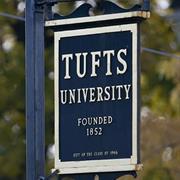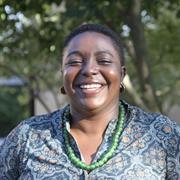Spring: n/a
Summer: n/a
Overview
The MA/EdS in School Psychology is offered by the Department of Education to prospective school psychologists. School Psychologists have a vital responsibility in the nation's schools to promote equitable educational and mental health services for all children with special attention to the systems and structure that harm, marginalize, and disenfranchise students, families, and educators in schools.
This program typically takes three years to complete with students completing 25 courses and field work.
This program is geared toward school-based practice. It is fully approved by the National Association of School Psychologists and the Massachusetts department of Elementary and Secondary Education.
Program Outcomes
A hallmark of the Tufts School Psychology program is the emphasis on the application of classroom-based knowledge. Students participate in field experiences during all three years of the program and apply knowledge and skills from the classroom to field-based experiences. You'll receive support and guidance in your field placements from supervisors at your field sites as well as program faculty.
Graduates of the program are immediately eligible for both a state and national license as a School Psychologist. On average, 100% of our graduates are employed as school psychologists within three months of graduating from the program. In any given year, 75% are typically employed at schools in Massachusetts across the preK-12 age range.
Application Requirements
- Application fee
- Resume/CV
- Personal statement
- Official TOEFL, IELTS, or Duolingo English Test, if applicable
- Transcripts
- Three letters of recommendation
- Shadowing: School Psychology candidates must interview or shadow a school psychologist to become informed about the roles and responsibilities in the field. Candidates must also submit a supplemental essay of 500 words or less describing what they've learned from the experience of shadowing a school psychologist.
- Select candidates will be invited to the virtual School Psychology Program Interview Day in March.
Prerequisites
Students are required to have a course in Abnormal Psychology (or the equivalent), Developmental Psychology, and Statistics/Research Methods as prerequisites for enrollment. In addition, a course on racism, racial equity, or social justice, or relevant fieldwork related to racial or social justice is required.
Tuition & Fees
GSAS bills tuition using a per-credit billing model, meaning you are billed for the number of credits you take each semester. This billing model is used to provide students better flexibility so they may "pay-as-they-go".
| Tuition* | $1,270 per credit |
| Total Credits Required | 73 |
| Enrollment Status | Part-Time: 3-6 credits (typically 1-2 courses) Full-Time: 9+ credits (typically 3 or more courses) or qualifying enrollment criteria (assistantships, internships, or continuation courses, etc.) |
Estimating Tuition Costs for this Program
This example pathway outlines estimated tuition costs per semester using a typical full-time course load. This is one possible pathway to completion; actual credits, costs, enrollment status, and degree completion time may vary based on a student’s course load.
| Full-Time Pathway | Summer | Fall | Spring | Total |
| Year 1 | n/a | 16 credits | 16 credits | 32 credits |
| n/a | $20,320 | $20,320 | $40,640 | |
| Year 2 | 12 credits | 12 credits | 11 credits | 35 credits |
| $15,240 | $15,240 | $13,970 | $44,450 | |
| Year 3 | n/a | 3 credits | 3 credits | 6 credits |
| n/a | $3,810 | $3,810 | $7,620 | |
| Estimated Total Tuition Before Aid* | $92,710* | |||
Note: this example does not account for any scholarships that may be awarded at the time of admission. GSAS offers generous merit- and need-based tuition scholarships for qualified applicants. A list of funding opportunities is provided below.
*Estimated based on 2025-2026 tuition rates. Rates are subject to change each academic year. For further information about the full cost of attendance, including health insurance, fees, and estimated indirect costs (housing, transportation, etc.), visit Student Financial Services.
Financial Aid & Funding Opportunities
At Tufts University, we believe that every qualified applicant should have the opportunity to pursue graduate study, regardless of financial circumstances. We are committed to helping you navigate the financial aspects of your education and strive to make graduate school accessible through a variety of support options.
Scholarships and Awards Available for this Program
- Merit- and need-based tuition scholarships for master’s programs: To be considered, be sure to indicate your interest within the Financial Aid section of your application.
- The Future Leaders Fellowship is a full-tuition scholarship for outstanding full-time master’s students and entry-level OTD students. Future Leaders Fellows are selected by the GSAS Dean following their admittance to Tufts.
- City Year Corps members, alumni, and staff are eligible to receive a minimum scholarship award of 25% off tuition.
Work Opportunities and Awards
- There are various graduate assistantships and work opportunities available for Master’s students across Tufts.
- The Graduate Student Open Access Publishing Fund provides financial support to students who want to publish their work open access.
- The Graduate Student Research Competition provides funding for expenses including equipment, materials, and supplies; research participant compensation; and expenses of travel to conduct research.
- The Graduate Student Conference Reimbursement Fund is available for students to travel to present or attend at a conference or professional meeting.
Visit our Graduate Financial Aid page for information on loans and financing options.
Faculty
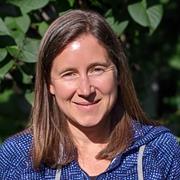
Erin Seaton

Erin Seaton
Research/Areas of Interest: Climate change and schooling, school-based mental health, human development, teaching and learning, adolescence, gender, equity in education, special education, qualitative research methods, child and adolescent literature and literacy, writing
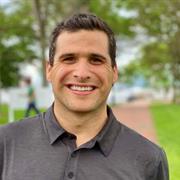
Scott Greenspan

Scott Greenspan
Research/Areas of Interest: Scott's research focuses on school-based mental health services and multi-tiered systems of support, physical activity promotion, and affirming psychosocial supports for LGBTQIA+ youth. He publishes his work in peer-reviewed journals and presents at national conferences.
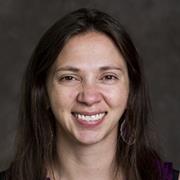
Meredith Edelstein

Meredith Edelstein
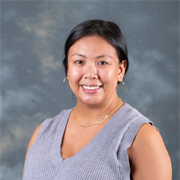
Hong Ly

Hong Ly
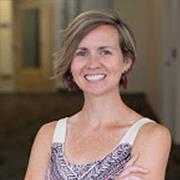
Noelle Roop

Noelle Roop

Robert Trant

Robert Trant

Rachel Vorkink

